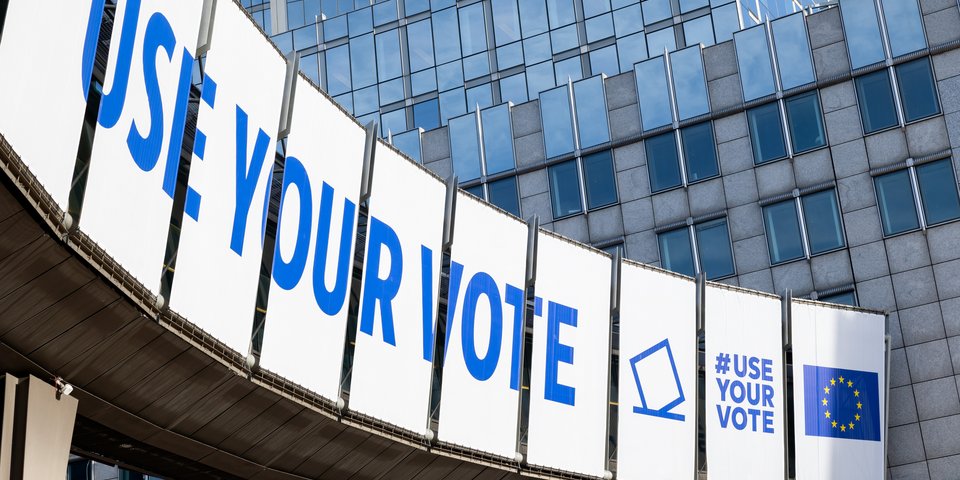 © European Union 2024 - Source : EP
© European Union 2024 - Source : EPBeyond the European elections
The next steps concern the majority formation and allocation of the top jobs.
HS – 06/2024
Once the
European elections are over, the search for majorities begins in Brussels. On
the one hand, this concerns the European Parliament, where the elections have
roughly determined the balance of power, but a lot can still happen between now
and the beginning of July as a result of the formation of the political groups.
The EPP emerged as the strongest party in the election. In the meantime, it has
been able to extend its lead over the Social Democrats by having more members
join the group. The right-wing conservative ECR political group was also able
to catch up. After the election, it was in fourth place, but has since
overtaken the Liberals to become the third-largest political group.
Group formation in the European Parliament
4th July
is the internal deadline for the formation of new political groups and major changes.
This is important in order to be able to agree internally on how many and which
posts are allocated to which political groups – from vice-presidents of the
European Parliament to committee chairs, there are around 100 posts available.
By and large, the distribution of posts should be based on the size of the political
groups. However, in the last legislative period, the so-called "cordon
sanitaire" agreed upon by the remaining political groups prevented members
of the far-right ID group from occupying key positions. New groups can be
formed or changes made at any time. However, the internal votes in June and
July ensure that the group structure in the European Parliament is largely in
place before the first week of the first plenary session (16th to 19th July).
Discussions about the top jobs continue
While
majorities are being formed in the European Parliament, the European Council is
discussing the so-called top jobs. This is traditionally done as a package and
concerns the presidency of the European Commission, of the European Council and
the post of High Representative of the EU for Foreign Affairs and Security
Policy. At best, party membership and majority ratios, but also a balance in
terms of country groups and gender, are taken into account. On 17th June, the
EU heads of state and government met for the first time for an informal dinner to
discuss the top jobs. No agreement was reached.
Apart
from the top jobs, other powerful posts are part of the discussions among the
heads of state and government, in particular the posts of vice-presidents of
the European Commission. An agreement on the top jobs is now expected at the
formal meeting of the European Council on 27th/28th June. As the European
Council has the right to nominate the President of the European Commission,
this step is a prerequisite for the election of the Commission President, which
is expected to take place in the first plenary session of the European
Parliament (16th-19th July).
First plenary session of the European Parliament
The
presidency of the European Parliament, on the other hand, is not a classic part of the
discussions about the top jobs. Instead, it has been customary for many years
for the EPP and the PES, as the two largest European party families represented
in Parliament, to divide the presidency into two and a half years each. The
election of the President of the European Parliament will take place on the
first day of the first plenary session (16th July). In addition, the Conference
of Presidents – the Parliament President and the chairpersons of the political
groups – votes on the committees and their size.
Cooperation between the political groups
It is
currently still unclear how the political groups intend to work together in the
coming parliamentary period. As the largest political group, the EPP is
negotiating primarily with the Social Democrats and the Liberals – also to
ensure sufficient support for its lead candidate Ursula von der Leyen as
Commission President. However, talks may also take place with the Greens and
parts of the ECR. In this complicated situation of interests, there is the idea
of a coalition agreement to agree on some specific content in advance. The four
political groups of the pro-European centre tried to reach such an agreement
back in 2019 but were unsuccessful at the time.
Further steps
If the
European Parliament elects a Commission President during its first session in
July, the designated Commission President can put together the College of
Commissioners over the summer following nominations of individual members by
the Member States. The hearings of the designated Commissioners and the vote on
the entire College by the European Parliament will then take place in the
autumn.
